目录 :
- Spring Boot 安全管理 :
- 一、Spring Security 介绍
- 二、Spring Security 快速入门
- 2.1 基础环境搭建 :
- ① 创建Spring Boot 项目
- ② 创建 html资源文件
- ③ 编写Web控制层
- 2.2 开启安全管理效果测试 :
- ④ 添加 spring-boot-starter-security 启动器
- ⑤ 项目启动测试
- 三、"MVC Security" 安全配置介绍
- 四、自定义 "用户认证" ( 确认用户"是否登录" , 并对登录进行 "管控" )
- 4.1 "内存" 身份认证 ( In-Memory Authentication ) - ( 开发测试环境中使用,无法用于"实际生产环境" ) :
- ① 自定义 WebSecurityConfigurerAdapter 配置类 ( 创建一个配置类,该类继承 WebSecurityConfigurerAdapter类 )
- ② 使用 "内存" 进行 "身份认证"
- ③ 效果测试
- 4.2 "JDBC" 身份认证 ( JDBC Authentication ) - ( 将"用户登录信息" 与 "数据库信息" 进行 比对,判断是否是"合法用户" ) :
- ① 数据准备
- ② 添加 "JDBC 连接数据库" 的 "依赖启动器"
- ③ application.properties 中 进行 "数据库连接配置"
- ④ 使用 JDBC 进行 "身份认证"
- ⑤ 效果测试
- 4.3 "UserDetailsService" 身份认证 :
- ① 基础项目文件准备
- ② 定义查询用户及角色信息的服务接口
- ③ 定义 "UserDetailsService" 用于封装认证用户信息 ( 创建类实现 "UserDetailsService接口" , 在该类中封装 "认证用户的信息" )
- ④ 使用 UserDetailsService 进行身份认证 ( 创建一个配置类,该类继承 WebSecurityConfigurerAdapter类 , 类中重写的方法中调用 userDetailsService( )实现 "UserDetailsService身份认证" )
- ⑤ 效果测试
Spring Boot 安全管理 :
作者简介 :一只大皮卡丘,计算机专业学生,正在努力学习、努力敲代码中! 让我们一起继续努力学习!
该文章参考学习教材为:
《Spring Boot企业级开发教程》 黑马程序员 / 编著
文章以课本知识点 + 代码为主线,结合自己看书学习过程中的理解和感悟 ,最终成就了该文章
文章用于本人学习使用 , 同时希望能帮助大家。
欢迎大家点赞👍 收藏⭐ 关注💖哦!!!
(侵权可联系我,进行删除,如果雷同,纯属巧合)
- 实际开发中,一些应用通常要考虑到 安全性问题。例如,对于一些重要的操作,有些请求需要用户验明身份后才可以执行,还有一些请求需要用户 具有特定权限才可以执行。这样做的意义不仅可以用来保护项目安全,还可以控制项目访问效果。
一、Spring Security 介绍
-
针对 项目的安全管理,Spring家族提供了安全框架 : Spring Security,它是一个 基于 Spring生态圈的,用于提供安全访问控制解决方案的框架,为了方便 Spring Boot 项目 的安全管理,Spring Boot 对 Spring Security 安全框架进行了 整合支持,并提供了 通用 的 自动化配置,从而实现了 Spring Security 安全框架中包含的多数安全管理功能,下面,针对 常见的安全管理功能进行介绍,具体如下 :
(1) MVC Security是 Spring Boot 整合 Spring MVC 搭建 Web 应用的安全管理框架,也是 开发中 "使用最多 的一款安全功能。
(2) WebFlux Security是 Spring Boot 整合 Spring WebFlux 搭建 Web 应用的安全管理。虽然 Spring WebFlux 框架刚出现不久、文档不够健全,但是它集成了其他安全功能的优点,后续有可能在 Web 开发中越来越流行。
(3) OAuth2是大型项目的安全管理框架,可以实现 第三方认证、单点登录 等功能,但是目前 Spring Boot 版本
还不支持 OAuth2 安全管理框架。
(4) Actuator Security用于对项目的一些 运行环境提供安全监控,例如 Health 健康信息、Info 运行信息等,它主要作为系统指标供运维人员查看管理系统的运行情况。
上面介绍了 Spring Boot 整合 Spring Security 安全框架可以实现的一些安全管理功能。项目安全管理是一个很大的话题,开发者可以 根据实际项目需求,选择性地 使用 Spring Security 安全框架 中的功能。
二、Spring Security 快速入门
- Spring Security 的 安全管理有两个重要概念,分别是 Authentication ( 认证 )和 Authorization ( 授权 )。其中,
① 认证 即 确认用户是否登录,并对 用户登录 进行 管控;
② 授权 即 确定用户所拥有的功能权限,并对 用户权限进行管控。
- 本章后续将对 Spring Boot 整合 Spring Security 进行安全管理的讲解和实现将围绕用户登录管理和访问权限控制进行。下面我们先通过一个 快速入门 的 案例 来体验 Spring Boot 整合 Spring Security 实现的 MVC Security 安全管理效果。
2.1 基础环境搭建 :
- 为了更好地使用 Spring Boot 整合实现 MVC Security 安全管理功能,实现 Authentication( 认证 ) 和 Authorization
( 授权 ) 的功能,下面通过一个案例进行演示讲解 。
① 创建Spring Boot 项目
② 创建 html资源文件
③ 编写Web控制层
-
FileController.java :
import org.springframework.stereotype.Controller; import org.springframework.web.bind.annotation.GetMapping; import org.springframework.web.bind.annotation.PathVariable; @Controller //加入到IOC容器 public class FileController { //控制层类 //影片详情页 @GetMapping("/detail/{type}/{path}") //为路径变量 public String toDetail(@PathVariable("type") String type, @PathVariable("path") String path) { //返回值为String类型,可用于返回视图页面 return "detail/" + type + "/" + path; } }
2.2 开启安全管理效果测试 :
④ 添加 spring-boot-starter-security 启动器
-
在 Spring Boot 项目中 开启 Spring Security 的方式非常简单,只需要引入 spring-boot-starter-security 启动器即可。
org.springframework.boot spring-boot-starter-security 需要说明的是,一旦项目 引入 spring-boot-starter-security 启动器,MVC Security 和 WebFlux Security 负责的 安全功能都会立即生效 。
ps :
① WebFlux Security 生效的 另一个前提是项目 属于 WebFlux Web 项目 );
② 对于 OAuth2 安全管理功能来说,则还需要额外引入一些其他安全依赖。
⑤ 项目启动测试
-
启动项目后,仔细 查看控制台的打印信息,项目启动时会在 "控制台"上 自动生成一个“安全密码” ( security password ) , 这个
密码是每次项目启动时 "随机生成" 的 ,如下图所示 :
-
此时通过浏览器访问 http://localhost:8080/ 访问 项目首页,会自动跳转到一个新的登录链接页面 : http://localhost:8080/login , 这说明在项目中 添加 spring-boot-starter-security依赖启动器后,项目实现了 Spring Security 的 自动化配置,并且 具有了一些默认的安全管理功能。另外,项目中并没有手动创建用户登录页面,而添加了Security 依赖后,Spring Security 会 自带一个默认的登录页面。 如下图所示 :
-
在 登录页面随意输入一个错误的用户名和密码,会出现 错误提示,效果如下图所示 :
从上图可以看出,当在 Spring Security 提供的默认登录页面“/ogin”中输入错误登录信息后,会 重定向到“/ogin?error”页面并显示出错误信息“用户名或密码错误”。
需要说明的是,在 Spring Boot 项目中加入 spring-boot-starter-security 依赖启动器后Security 会默认提供一个可登录的用户信息,其中 用户名为 user ,密码随机生成,这个密码随着项目的 每次启动随机生成 并 打印在控制台 上。
-
输入账号 和 密码 后,会 自动跳转 到 “登录首页” :
注意点 :
这种默认安全管理方式存在诸多问题。例如,只有唯一的默认登录用户 :user、密码随机生成且过于暴露、登录页面及错误提示页面不是我们想要的等。
三、“MVC Security” 安全配置介绍
-
使用 Spring Boot与 Spring MVC 进行 Web 开发时,如果项目引入 spring-boot-starter-security 依赖启动器,MVC Security 安全管理功能就会自动生效,其 默认 的 安全配置 是在 ① SecurityAutoConfiguration 和
② UserDetailsServiceAutoConfiguration 中 实现的。
-
其中,① SecurityAutoConfiguration 会 导入并自动化配置 : SpringBootWebSecurityConfiguration用于启动 Web安全管理,② UserDetailsServiceAutoConfiguration 则用于 配置用户身份信息。
-
通过自定义 WebSecurityConfigurerAdapter 类型的 Bean 组件,可以 完全关闭 Security 提供的 Web 应用默认安全配置,但是 不会关闭 UserDetailsService 用户信息自动配置类。如果要关闭 UserDetailsService默认用户信息配置,可以自定义UserDetailsService、AuthenticationProvider 或 AuthenticationManager 类型的 Bean 组件。
另外,可以通过自定义 WebSecurityConfigurerAdapter 类型的 Bean 组件 覆盖默认访问规则。Spring Boot 提供了非常多方便的方法,可用于覆盖请求映射和静态资源的访问规则。
-
下面我们通过 Spring Security API查看 WebSecurityConfigurerAdapter 的主要方法,具体如下表所示 :
方法 描述 configure ( AuthenticationManagerBuilder auth ) 定制用户认证管理器来实现 用户认证 ( 确认用户"是否登录" ,并对登录进行 “管控” ) configure ( HttpSecurity http ) 定制基于 HTTP 请求的 用户访问控制 ( 权限管理 / 授权管理 )
四、自定义 “用户认证” ( 确认用户"是否登录" , 并对登录进行 “管控” )
-
通过 自定义 WebSecurityConfigurerAdapter 类型的Bean 组件,并重写 confiqure ( AuthenticatiorManagerBuilder auth ) 方法,可以 自定义用户认证。
-
针对 自定义用户认证,Spring Security 提供了 多种自定义认证方式,包括有:
① In-Memory Authentication ( 内存身份认证 )
② JDBCAuthentication( JDBC 身份认证 )
③ LDAP Authentication( LDAP 身份认证 )
④ AuthenticationProvider(身份认证提供商)
⑤ UserDetailsService( 身份详情服务 )。
下面我们选取其中 3个比较有代表性的方式讲解如何 实现自定义用户认证。
4.1 “内存” 身份认证 ( In-Memory Authentication ) - ( 开发测试环境中使用,无法用于"实际生产环境" ) :
- In-Memory Authentication ( 内存身份认证 ) 是 最简单的 身份认证方式 ( 用户凭证 :如 用户名、密码、角色 等存储在内存中,当用户尝试登录时,应用程序会在 内存中查询和匹配是否有该用户 ) ,主要 用于Security安全认证体验和测试。
- 自定义内存身份认证时,只需要在 重写的 configure ( AuthenticationManagerBuilder auth ) 方法中定义测试用户即可。
- 下面通过 Spring Boot 整合 Spring Security 实现 内存身份认证 ,具体步骤如下。
① 自定义 WebSecurityConfigurerAdapter 配置类 ( 创建一个配置类,该类继承 WebSecurityConfigurerAdapter类 )
-
在 上面已经创建的项目的基础上,创建 配置类 : SecurityConfig类,该类继承 WebSecurityConfigurerAdapter 类
SecurityConfig.java :
import org.springframework.security.config.annotation.web.configuration.*; @EnableWebSecurity //开启MVC Security 安全支持 public class SecurityConfig extends WebSecurityConfigurerAdapter{ //关于Spring Boot 安全管理 (安全框架) 的 配置类 }上述代码中,自定义了一个 继承 自 WebSecurityConfigurerAdapter 的 SecurityConfig 配置类,用于进行 MVC Security 自定义配置,该类上方的 @EnableWebSecurity 注解是一个组合注解,其效果等同于 :
@Configuration、@lmport、@EnableGlobalAuthentication 的组合用法,关于这些注解的介绍具体如下:
注解 描述 @Configuration 注解 标记该类为SpringBoot 的 " 配置类"。 @lmport 注解 根据pom.xml中 导入 的 Web模块 和 Security模块 进行 自动化配置。 @EnableGlobalAuthentication 注解 用于 开启自定义 的 全局认证。
② 使用 “内存” 进行 “身份认证”
-
在自定义的 SecurityConfig 类中 重写 configure( AuthenticationManagerBuilder auth )方法 , 并在该方法中使用内存身份认证的方式进行 自定义用户认证 :
SecurityConfig.java :
import org.springframework.security.config.annotation.authentication.builders.AuthenticationManagerBuilder; import org.springframework.security.config.annotation.web.configuration.*; import org.springframework.security.crypto.bcrypt.BCryptPasswordEncoder; @EnableWebSecurity //开启MVC Security 安全支持 public class SecurityConfig extends WebSecurityConfigurerAdapter{ //关于 "内存身份认证" 的 配置类 /** * 重写configure()方法,并在该方法中使用"内存身份认证"的方式进行"自定义用户认证" */ @Override protected void configure(AuthenticationManagerBuilder auth) throws Exception { //密码需要设置编码器 (创建一个"密码编辑器") BCryptPasswordEncoder encoder = new BCryptPasswordEncoder(); /* ① auth.inMemoryAuthentication() : 将创建一组"硬编码"的 "用户名和密码",它们将用于身份验证 , 这种方式在"开发和测试环境"中非常有用,但在生产环境中可能不是最佳选择,因为用户名和密码直接存储在代码中。 ② 在Spring Security中配置了 "内存" 中的"用户身份验证" , 配置了两个用户 ,这两个用户可以直接用于身份验证,无需连接"数据库"或"其他外部数据源"。 */ auth.inMemoryAuthentication() //设置一个"密码编辑器",用于在存储密码之前对其进行编码,这很重要,因为不能以明文形式存储密码。密码编码器可以将密码转换为一个不可逆的散列值 .passwordEncoder(encoder) //为用户名"张三"创建一个用户,密码为"123456"(已编码),该用户具有"common角色" .withUser("张三").password(encoder.encode("123456")).roles("common") //这是链式编程的一个常见模式,用于分隔不同的配置部分。 .and() //为用户名"李四"创建一个用户,密码为"123456"(已编码),该用户具有"common角色" .withUser("李四").password(encoder.encode("123456")).roles("vip"); //配置了内存中的用户身份验证,设置了两个账户,两个用户可以直接用于身份验证,而无需连接数据库或其他外部数据源。 } }在上面的代码文件中,重写了 WebSecurityConfigurerAdapter 类的 configure ( AuthenticationManageBuilder auth ) 方法,并在该方法中使用内存身份认证的方式自定义了认证用户信息。定义用户认证信息时,设置了两个用户,包括用户名、密码和角色。
( 存储了用户凭证 / 登录信息在内存中,当用户进行登录时,将登录信息与内存信息进行比对,进行“身份认证” )
注意点 :
上面的代码文件中进行的 自定义用户认证时,需要注意以下几个问题 :
(1) 从 Spring Security 5开始,自定义用户认证必须设置密码编码器用于保护密码,否则控制台会出现 “llegalArgumentException: There is no PasswordEncoder mapped for the idn"nul"”异常错误。
(2) Spring Security 提供了多种密码编码器,包括 BcryptPasswordEncoder、Pbkdf2PasswordEncoder、ScryptPasswordEncoder等,密码设置不限于本例中的 BcryptPasswordEncoder 密码编码器。
(3) 自定义用户认证时,可以定义用户角色roles,也可以定义用户权限 authorities。在进行赋值时,权限通常是在角色值的基础上添加“ROLE”前级。例如,authorities("ROLE_common”) 和 roles(“common”)是等效的。
(4) 自定义用户认证时,可以为 某个用户 “一次指定多个” 角色或权限,例如 roles ( “common”,“vip” ) 或者 authorities(“ROLE common”," ROLE_vip")
③ 效果测试
-
此时重新启动项目,启动成功后,可以看到==**控制台没有默认发现没有默认安全管理时随机生成 **的 密码==了,如下图所示 :
此时通过浏览器访问 http://localhost:8080/ 访问 项目首页,效果如下图所示 :
从上图可以看出 执行 http://localhost:8080/ 访问首页时,同样自动跳转到了用户登录页面“http://localhost:8080/login”。
如果输入的用户名或者密码错误,会出现相应的错误提示,效果如下图1所示。如果输入的用户名和密码正确,那么会跳转进入网站首页,效果如下图2所示。
此时点击电影名称同样可以查看电影详情,说明通过内存身份认证方式实现了自定义用户认证。
( 实际开发中,用户都是在 页面注册和 登录 时进行认证管理的,而 非在程序内部 使用 内存管理的方式手动控制注册用户,所以上述使用内存身份认证的方式 无法用于实际生产,只可以作为初学者的测试使用,或者可在测试或开发环境使用。 )
4.2 “JDBC” 身份认证 ( JDBC Authentication ) - ( 将"用户登录信息" 与 “数据库信息” 进行 比对,判断是否是"合法用户" ) :
- JDBC 身份认证 : JDBC Authentication , 是通过 JDBC 连接数据库对已有用户身份进行认证,下面通过一个案例讲解 JDBC 身份认证 。
① 数据准备
-
JDBC 身份认证的本质是使用 数据库中已有的用户信息在项目中实现用户认证服务,所以需要提前准备好相关数据。这里我们使用之前创建的名为 springbootdata 的数据库,在该数据库中创建3个表t_customer、t_authority和 t_customer_authority,并预先插入几条测试数据。
security.sql
注意点 :
使用 JDBC 身份认证方式创建用户/权限表以及初始化数据时,应特别注意以下几点 :
(1) 创建用户表t_customer 时,用户名 username 必须唯一,因为 Security 在进行用户查询时是 先通过 username 定位是否存在唯一用户 的。
(2) 创建用户表t_customer 时,必须额外定义一个 tinyint类型的字段 (对应 boolean 类型的属性,例如示例中的 valid ),用于 校验用户身份是否合法 (默认都是合法的)。
(3) 初始化用户表 t_customer 数据时,插入的用户密码 password 必须是对应 编码器编码后的密码,例如示例中的 密码:y2ay10y5ooQl8dir8jv0/gCa1Six.GpzAdIPf6pMgdminZ/3ijYzivCyPIfK 是使用 BcryptPasswordEncoder 密码加密后的形式 ( 对应的原始密码为 123456)。因此
在 自定义配置类 中进行 用户密码查询 时,必须 使用与数据库密码统一的 密码编码器进行 编码 。
(4)初始化权限表 t_authority 数据时,权限 authority 值必须 带有“ROLE ”前缀,而 默认 的 用户角色值 则是 对应权限值去掉“ROLE”前缀。
② 添加 “JDBC 连接数据库” 的 “依赖启动器”
-
在 pom.xml文件中,添加 Mysql数据库连接驱动的依赖 和 JDBC连接依赖 :
org.springframework.boot spring-boot-starter-jdbc mysql mysql-connector-java runtime
③ application.properties 中 进行 “数据库连接配置”
#Mysql数据库连接配置 (配置数据库信息) spring.datasource.driver-class-name=com.mysql.jdbc.Driver spring.datasource.url=jdbc:mysql://localhost:3306/springbootdata?useUnicode=true&characterEncoding=utf-8&serverTimezone=GMT&nullCatalogMeansCurrent=true spring.datasource.username=root spring.datasource.password=root
④ 使用 JDBC 进行 “身份认证”
-
完成准备工作后,在 configure ( AuthenticationManagerBuilder auth )方法 中使用 JDBC 身份认证的方式进行自定义用户认证,代码例子如下 :
SecurityConfig.java :
import org.springframework.beans.factory.annotation.Autowired; import org.springframework.security.config.annotation.authentication.builders.AuthenticationManagerBuilder; import org.springframework.security.config.annotation.web.configuration.EnableWebSecurity; import org.springframework.security.config.annotation.web.configuration.WebSecurityConfigurerAdapter; import org.springframework.security.crypto.bcrypt.BCryptPasswordEncoder; import javax.sql.DataSource; //使用 JDBC 进行身份认证 @EnableWebSecurity //开启MVC Security 安全支持 public class SecurityConfig extends WebSecurityConfigurerAdapter{ //关于 "JDBC身份认证" 的 配置类 @Autowired private DataSource dataSource; /** * 重写configure()方法,并在该方法中使用"JDBC身份认证"的方式进行"自定义用户认证" */ @Override protected void configure(AuthenticationManagerBuilder auth) throws Exception { //密码需要设置编码器 (创建一个"密码编辑器") BCryptPasswordEncoder encoder = new BCryptPasswordEncoder(); /** 使用 JDBC 进行身份认证 */ String userSQL ="select username,password,valid from t_customer " + "where username = ?"; String authoritySQL="select c.username,a.authority from t_customer c,t_authority a,"+ "t_customer_authority ca where ca.customer_id=c.id " + "and ca.authority_id=a.id and c.username =?"; //使用 JDBC 进行身份认证 auth.jdbcAuthentication() //设置密码编码器 .passwordEncoder(encoder) // 设置数据源 .dataSource(dataSource) //设置一个自定义的SQL查询,用于根据"用户名"查找"用户信息" .usersByUsernameQuery(userSQL) //设置一个自定义的SQL查询,用于根据"用户名"查找"用户的权限信息" .authoritiesByUsernameQuery(authoritySQL); } }在上面的代码中,先使用 @Autwired 注解装配了 DataSource 数据源,重写的方法 : configure( AuthenticationManagerBuilderaut ) 方法中使用 JDBC 身份认证的方式进行身份认证。
使用 JDBC 身份认证 时,首先需要对 密码 进行 编码设置 ( 必须与数据库中用户密码加密方式一样 ) , 然后需要加载 JDBC 进行认证连接的数据源 DataSource ; 最后,执行SQL语句,实现 通过用户名 username 查询用户信息和用户权限。
⑤ 效果测试
和之前的访问url的测试流程是一样的。
4.3 “UserDetailsService” 身份认证 :
- 对于 用户流量较大的项目来说,频繁地使用JDBC 进行 数据库查询认证不仅麻烦,而且 会降低网站响应速度。对于一个 完善的项目来说,如果某些业务 已经 实现了用户信息查询的服务 ,就 没必要使用 JDBC 进行身份认证 了。
- "UserDetailsService" 身份认证 代码 案例如下 :
① 基础项目文件准备
创建项目 : ( 查询mysql数据库用的mybatis框架 )
项目结构 :
pom.xml :
4.0.0 org.springframework.boot spring-boot-starter-parent 2.1.3.RELEASE com.myh chapter_21 0.0.1-SNAPSHOT chapter_21 chapter_21 1.8 com.alibaba druid-spring-boot-starter org.springframework.boot spring-boot-starter-data-redis org.springframework.boot spring-boot-starter-jdbc org.springframework.boot spring-boot-starter-security org.springframework.boot spring-boot-starter-thymeleaf org.springframework.boot spring-boot-starter-web mysql mysql-connector-java runtime org.springframework.boot spring-boot-starter-test test org.springframework.security spring-security-test test org.mybatis.spring.boot mybatis-spring-boot-starter 2.0.1 com.alibaba druid-spring-boot-starter 1.1.10
导入 Sql文件 ( 创建数据库表 ) :
security.sql
Customer.java :
import java.io.Serializable; public class Customer implements Serializable { //数据库表对应的实体类 private Integer id; //表示数据库表中“字段名”对应的属性 (如果“字段名”和“属性名”一致,则可不用配置该注解) private String username; private String password; private Integer valid; public Integer getId() { return id; } public void setId(Integer id) { this.id = id; } public String getUsername() { return username; } public void setUsername(String username) { this.username = username; } public String getPassword() { return password; } public void setPassword(String password) { this.password = password; } public Integer getValid() { return valid; } public void setValid(Integer valid) { this.valid = valid; } @Override public String toString() { return "Customer{" + "id=" + id + ", username='" + username + '\'' + ", password='" + password + '\'' + ", valid=" + valid + '}'; } }Authority.java :
import java.io.Serializable; public class Authority implements Serializable { private Integer id; private String authority; public Integer getId() { return id; } public void setId(Integer id) { this.id = id; } public String getAuthority() { return authority; } public void setAuthority(String authority) { this.authority = authority; } @Override public String toString() { return "Authority{" + "id=" + id + ", authority='" + authority + '\'' + '}'; } }
CustomerMapper.java :
import org.apache.ibatis.annotations.Mapper; import org.apache.ibatis.annotations.Select; @Mapper public interface CustomerMapper { /** * 根据username查询信息 */ @Select("select username,password,valid from t_customer where username =#{username}") Customer findByUsername(String username); }AuthorityMapper.java :
import org.apache.ibatis.annotations.Mapper; import org.apache.ibatis.annotations.Select; import java.util.List; @Mapper public interface AuthorityMapper { String authoritySQL = "select a.authority from t_customer c, t_authority a, t_customer_authority ca " + "where ca.customer_id = c.id " + "and ca.authority_id = a.id " + "and c.username = #{username}"; /** * 根据username查询"权限信息" */ @Select(authoritySQL) ListfindAuthoritiesByUsername(String username); }
主程序启动类 :
import org.mybatis.spring.annotation.MapperScan; import org.springframework.boot.SpringApplication; import org.springframework.boot.autoconfigure.SpringBootApplication; @SpringBootApplication @MapperScan("com.myh.chapter_21.mapper") //将该包下的所有接口都加入到IOC容器中 public class Chapter21Application { public static void main(String[] args) { SpringApplication.run(Chapter21Application.class, args); } }
application.properties :
#allowPublicKeyRetrieval=true #配置Mysql数据库信息 spring.datasource.driver-class-name=com.mysql.jdbc.Driver spring.datasource.url=jdbc:mysql://localhost:3306/springbootdata?useUnicode=true&characterEncoding=utf-8&serverTimezone=GMT&nullCatalogMeansCurrent=true&useSSL=false spring.datasource.username=root spring.datasource.password=root #添加并配置第三方数据源Druid(数据库连接池) spring.datasource.type=com.alibaba.druid.pool.DruidDataSource #初始化时创建的连接数。当应用程序启动时,连接池会立即创建这么多连接。 spring.datasource.initialSize=20 #连接池中最小的空闲连接数。连接池会维护至少这么多的空闲连接,当空闲连接数低于这个数值时,连接池会创建新的连接。 spring.datasource.minIdle=10 #连接池中最大的活动连接数。这表示在任何时候,连接池中的活动(即被使用的)连接数不会超过这个数值。如果所有连接都在使用中,并且达到这个上限,那么新的数据库连接请求将被阻塞或拒绝,直到有连接可用。 spring.datasource.maxActive=100 #配置Redis数据库连接信息/连接参数 spring.redis.host=127.0.0.1 #连接服务端口 spring.redis.port=6379 #连接密码 (默认为空) spring.redis.password=123456
创建 html资源文件 :
index.html页面是项目首页页面,common和vip文件夹中分别对应的普通用户 和 VIP用户可访问的页面。
index.html :
影视直播厅 欢迎进入电影网站首页
普通电影
VIP专享
1.html : ( 其他三个页面以此类推 )
Title 返回飞驰人生
.....② 定义查询用户及角色信息的服务接口
-
定义查询用户及角色信息的服务接口,在项目中创建一个 CustomerService业务处理类,用来通过用户名查询用
户信息及权限信息 :
CustomerService.java :
import org.springframework.beans.factory.annotation.Autowired; import org.springframework.data.redis.cache.RedisCacheManager; import org.springframework.data.redis.core.RedisTemplate; import org.springframework.data.redis.core.ValueOperations; import org.springframework.stereotype.Service; import java.util.List; // 对用户 @Service //加入到IOC容器 public class CustomerService { @Autowired private CustomerMapper customerMapper; @Autowired private AuthorityMapper authorityMapper; @Autowired private RedisTemplate redisTemplate; //通过 Redis API 的方式来进行 "Redis缓存" /** * 业务控制 : 使用唯一用户名查询用户信息 */ public Customer getCustomer(String username) { Customer customer = null; //从Redis数据库中获取"缓存数据" ValueOperations valueOperations = redisTemplate.opsForValue(); Object obj = valueOperations.get("customer_" + username);//获得指定名称的"缓存数据" //判断是否有该缓存数据 if (obj != null) { customer = (Customer) obj; } else { //不存在该缓存数据,则从数据库中查询缓存数据 customer = customerMapper.findByUsername(username); //根据username来在数据库中查询数据 if (customer != null) { redisTemplate.opsForValue().set("customer_"+username,customer); } } return customer; } /** * 业务控制 : 使用"唯一用户名"查询用户权限 */ public ListgetCustomerAuthority(String username) { List authorities = null; //尝试从Redis数据库中获得缓存数据 Object obj = redisTemplate.opsForValue().get("authorities_" + username); if (obj != null) { authorities = (List ) obj; } else { //没找到缓存数据则从Mysql数据库中查询数据 authorities = authorityMapper.findAuthoritiesByUsername(username); //如果查询到了数据 if (authorities.size() > 0) { redisTemplate.opsForValue().set("authorities"+username,authorities); } } return authorities; } }
③ 定义 “UserDetailsService” 用于封装认证用户信息 ( 创建类实现 “UserDetailsService接口” , 在该类中封装 “认证用户的信息” )
-
UserDetailsService接口 是 Security 提供的用于 封装认证用户信息的接口,该接口提供的 loadUserByUsername(Strings) 方法用于通过用户名加载用户信息。使用 UserDetailsService 进行 身份认证时,自定义一个UserDetailsService接口的 实现类,通过loadUserByUsername(String s)方法 封装用户详情信息 并 返回 UserDetails 对象 供 Security 认证使用。
UserDetailServiceImpl.java :
import org.springframework.beans.factory.annotation.Autowired; import org.springframework.security.core.authority.SimpleGrantedAuthority; import org.springframework.security.core.userdetails.User; import org.springframework.security.core.userdetails.UserDetails; import org.springframework.security.core.userdetails.UserDetailsService; import org.springframework.security.core.userdetails.UsernameNotFoundException; import org.springframework.stereotype.Service; import java.util.List; import java.util.stream.Collectors; import java.util.stream.Stream; //自定义一个UserDetailsService接口实现"用户认证信息"封装 : 在其中封装"用户认证信息" @Service public class UserDetailServiceImpl implements UserDetailsService { //实现 UserDetailsService接口 @Autowired private CustomerService customerService; @Override public UserDetails loadUserByUsername(String username) throws UsernameNotFoundException { /** 通过业务方法(业务层类)获取用户以及权限信息 */ //根据username获得Customer对象信息 Customer customer = customerService.getCustomer(username); //根据username获得 "权限信息" Listauthorities = customerService.getCustomerAuthority(username); /** * 对用户权限进行封装 */ List list = authorities //"权限信息"集合 转换为一个流(Stream) , 以便进行后续的流式操作 .stream() /* 使用map操作 / map()函数 来转换流中的每个元素 (将流中的"每一个元素"转换为 "另一种形式") 具体分析: authority -> 获得流中的每一个元素,将其转换为另一种形式 authority.getAuthority() : 获得 authority 这个元素对象的"权限信息" ( 是一个"权限信息"的字符串 ) new SimpleGrantedAuthority(authority.getAuthority())) : 使用这个 "权限信息字符串" 创建一个 SimpleGrantedAuthority对象, 该对象 是 Spring Security框架中用于表示 "授权信息" 的类 */ .map(authority -> new SimpleGrantedAuthority(authority.getAuthority())) /* 以下是一个终端操作,它告诉流如何收集其元素以生成一个结果。 具体分析: .collect(Collectors.toList()) : 收集转换后的 SimpleGrantedAuthority对象,并将其放入一个新的列表中 */ .collect(Collectors.toList()); /** * 创建 UserDetails (用户详情) 对象,并将该对象进行返回 */ if (customer != null) { //用 username 、password 、权限信息集合 作为参数创建 UserDetails对象 ( 用户详情对象 ) UserDetails userDetails = new User(customer.getUsername(), customer.getPassword(), list); return userDetails; } else { //如果查询的用户不存在 (用户名不存在 ) , 必须抛出异常 throw new UsernameNotFoundException("用户名不存在!"); } } } 在上面的文件代码中,重写了UserDetailsService接口的 loadUserByUsername( )方法 ,用于借助 CustomerService 业务处理类获取 用户信息和 权限信息 ,并通过 UserDetails 进行认证信息封装。
需要注意的是 :
CustomerService 业务处理类获取User 实体类时,必须对当前用户进行 非空判断,这里使用 throw 进行异常处理,如果 查询的用户为空 ,throw会抛出 UsernameNotFoundException 的异常。如果没有 使用 throw 异常处理 ,Security 将无法识别,导致程序整体报错。
④ 使用 UserDetailsService 进行身份认证 ( 创建一个配置类,该类继承 WebSecurityConfigurerAdapter类 , 类中重写的方法中调用 userDetailsService( )实现 “UserDetailsService身份认证” )
-
SecurityConfig.java :
import org.springframework.beans.factory.annotation.Autowired; import org.springframework.security.config.annotation.authentication.builders.AuthenticationManagerBuilder; import org.springframework.security.config.annotation.web.builders.WebSecurity; import org.springframework.security.config.annotation.web.configuration.EnableWebSecurity; import org.springframework.security.config.annotation.web.configuration.WebSecurityConfigurerAdapter; import org.springframework.security.crypto.bcrypt.BCryptPasswordEncoder; @EnableWebSecurity //开始MVC security身份认证 public class SecurityConfig extends WebSecurityConfigurerAdapter { // 该类为 : 进行 "UserDetailsService"身份认证 的 "配置类" @Autowired private UserDetailServiceImpl userDetailService; //该类为 配置好了"UserDetailsService"身份认证 信息的类,使用该类来进行 "UserDetailsService"身份认证 @Override protected void configure(AuthenticationManagerBuilder auth) throws Exception { //密码需要设置编码器 ( 添加"密码编辑器") BCryptPasswordEncoder encoder = new BCryptPasswordEncoder(); //使用UserDetailService进行"身份认证" auth.userDetailsService(userDetailService) //设置"密码编辑器" .passwordEncoder(encoder); } }
⑤ 效果测试
和之前的访问url的测试流程是一样的。
至此 ,关于 Spring Boot 整合 Spring Security 中的 自定义用户认证 知识讲述完毕。内存身份认证最为简单,主要用作测试和新手体验; JDBC 身份认证和 UserDetailsService 身份认证在实际开发中使用较多,而这两种认证方式的选择,主要根据实际开发中已有业务的支持来确定。


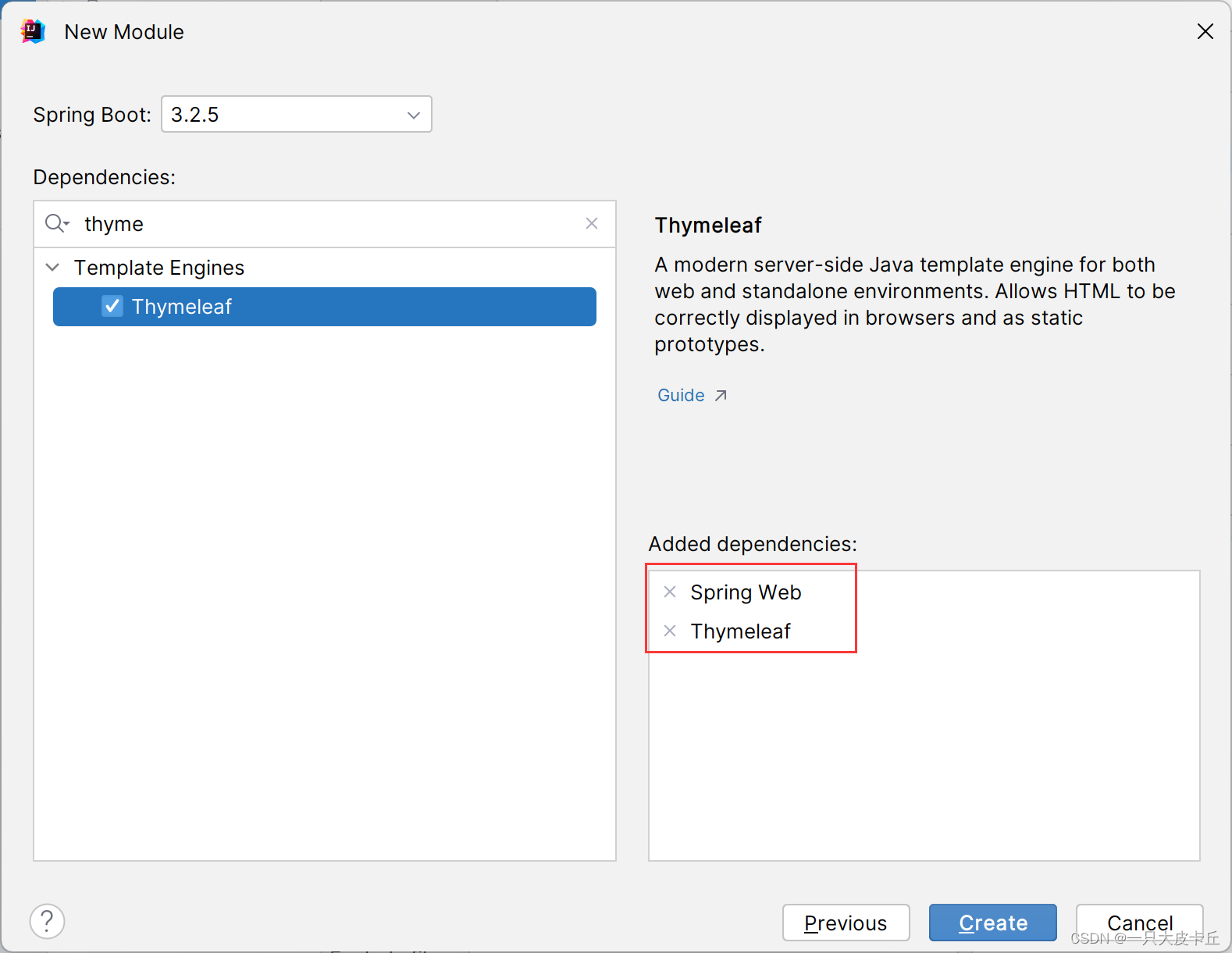
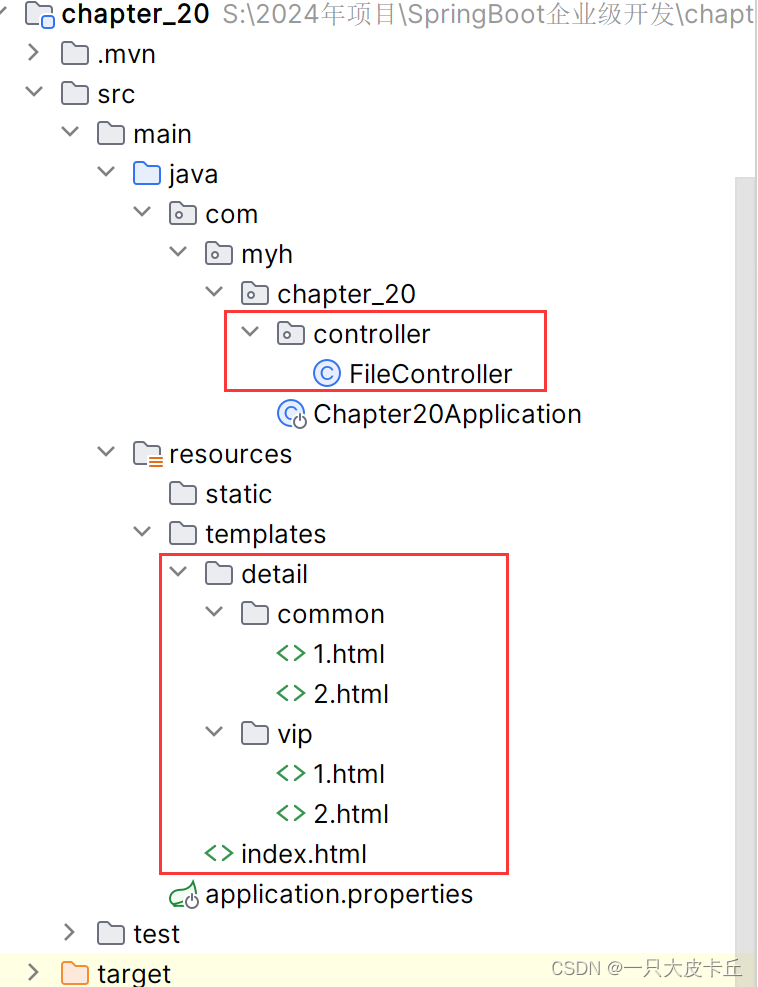






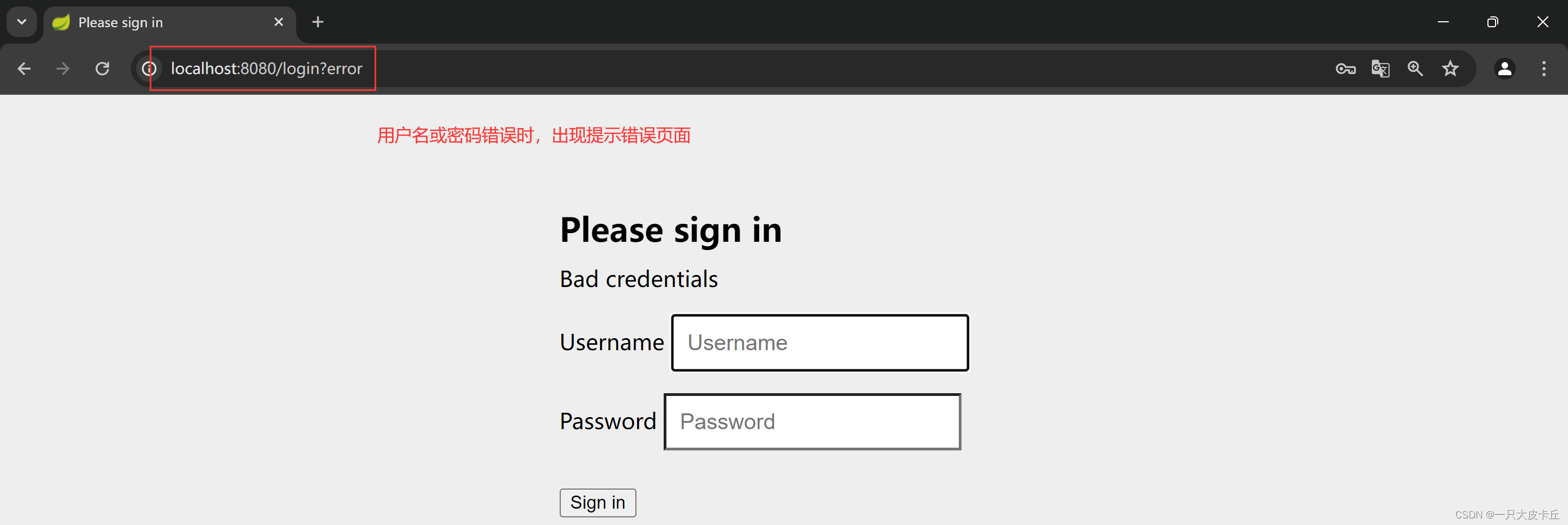

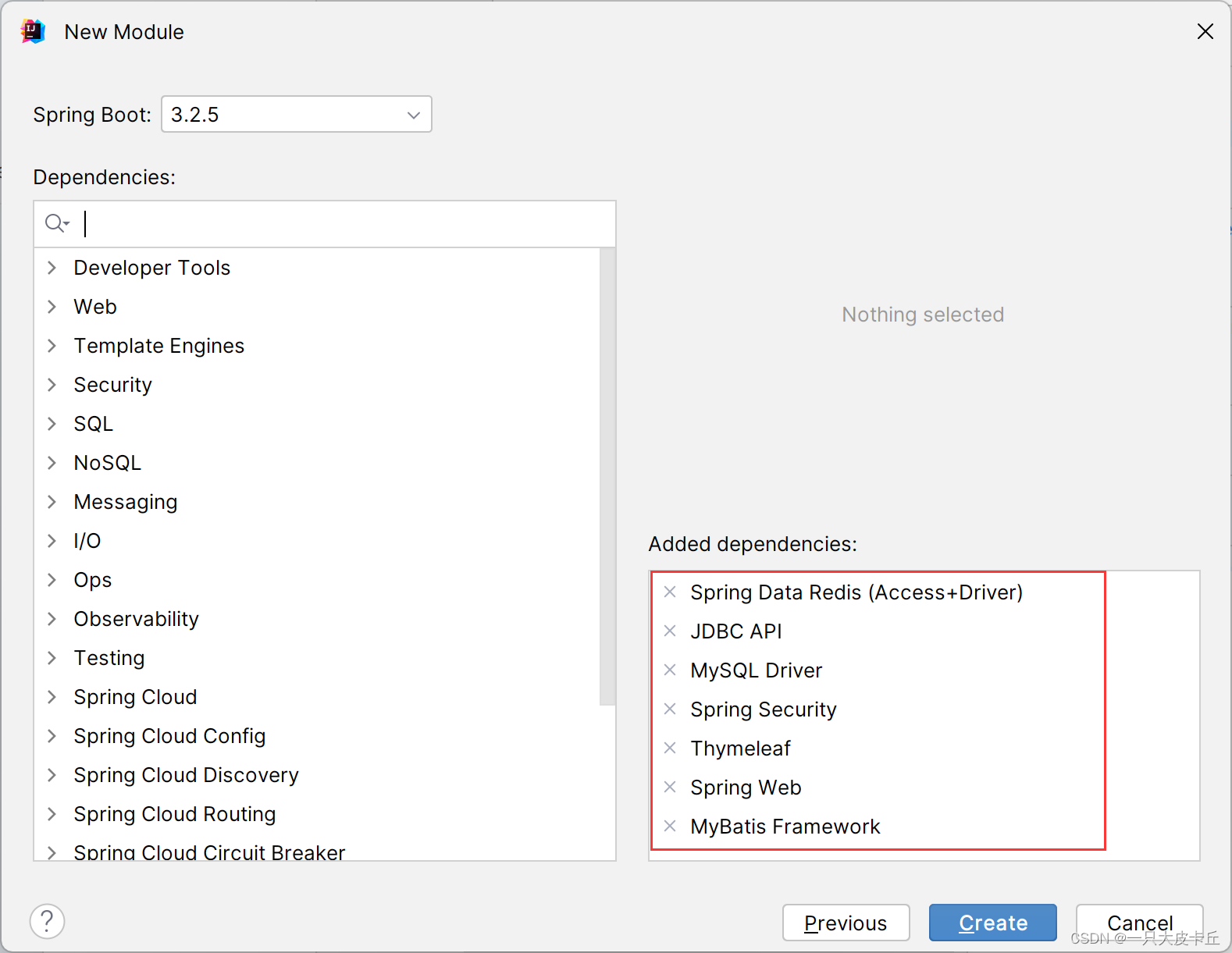
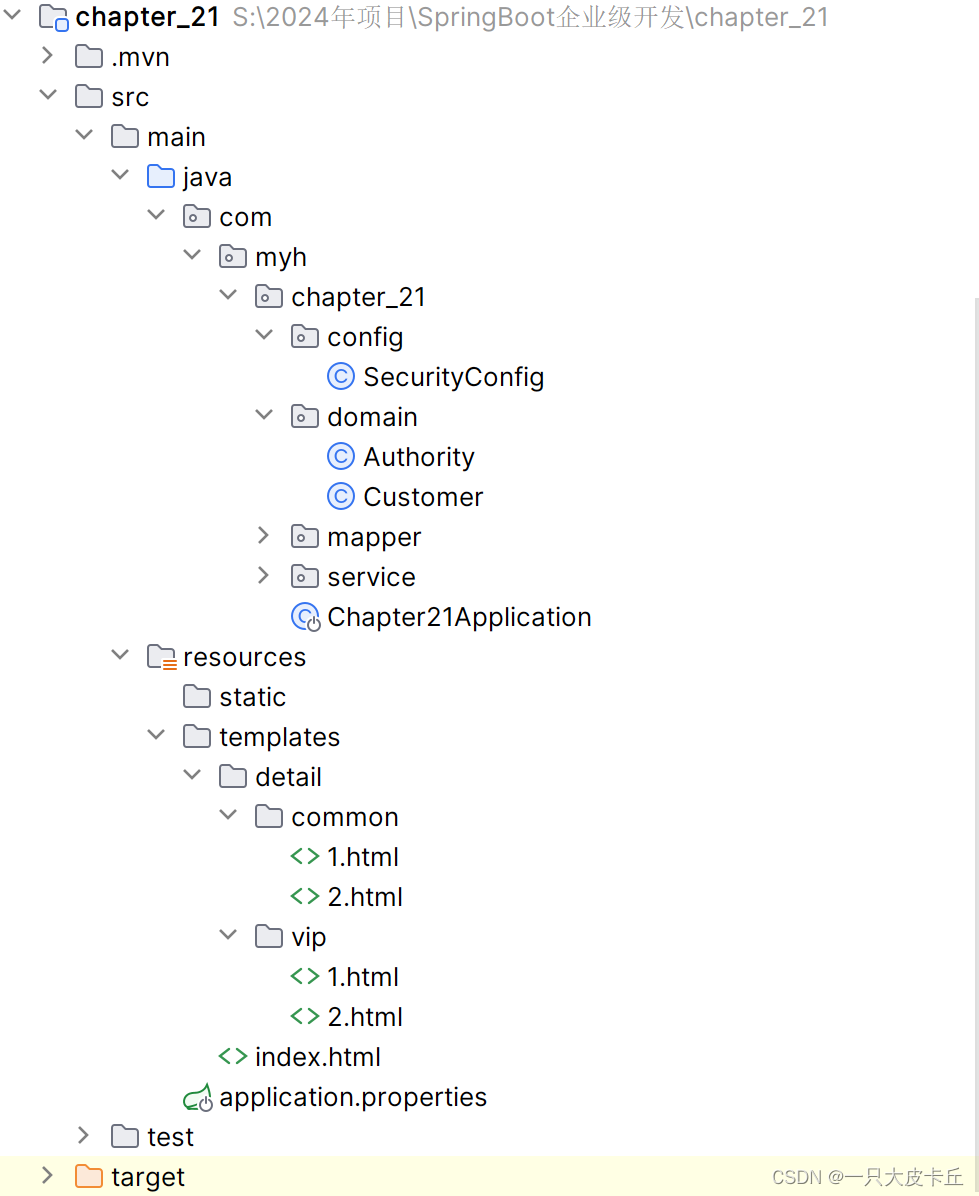

![[工业自动化-1]:PLC架构与工作原理](https://img-blog.csdnimg.cn/ce10a1471ed14382bc58364cf8bd5209.png)



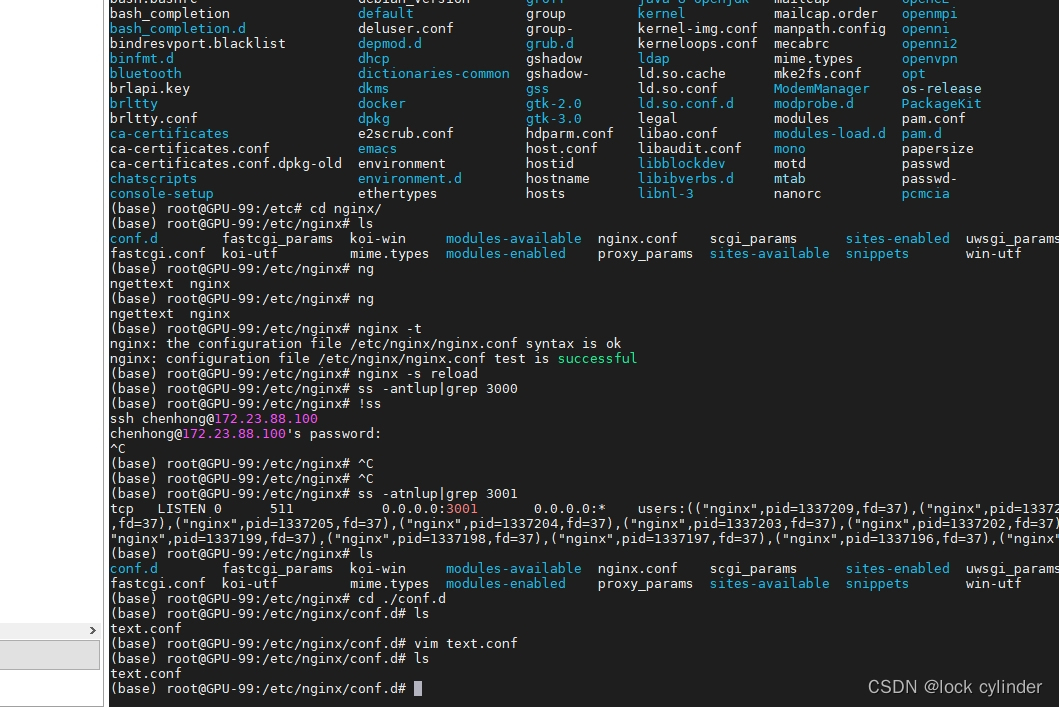

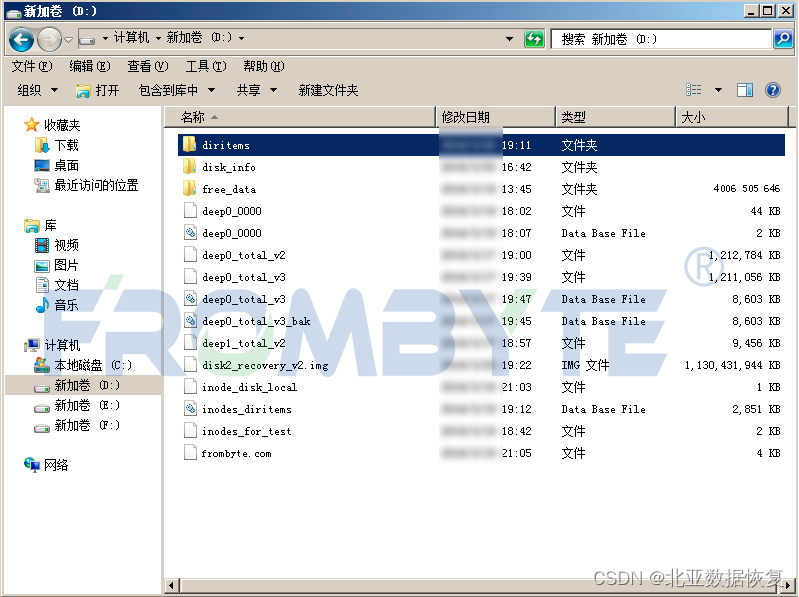
还没有评论,来说两句吧...